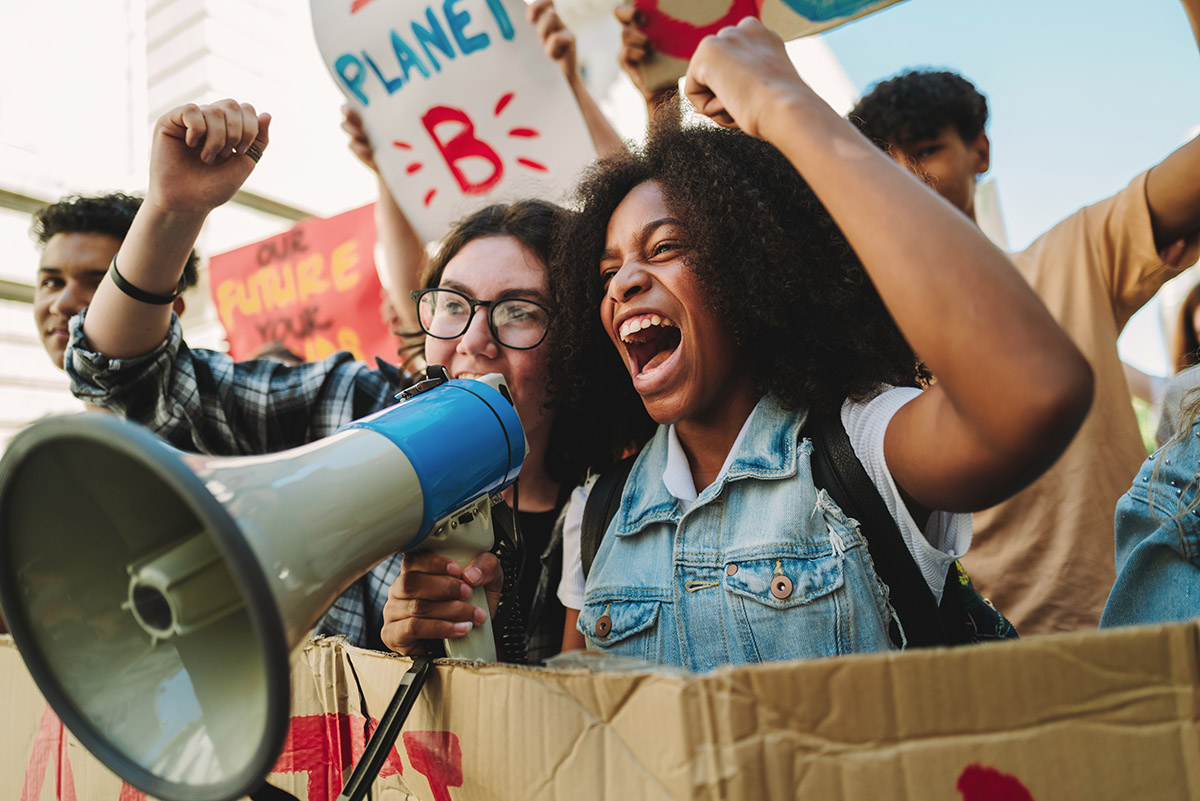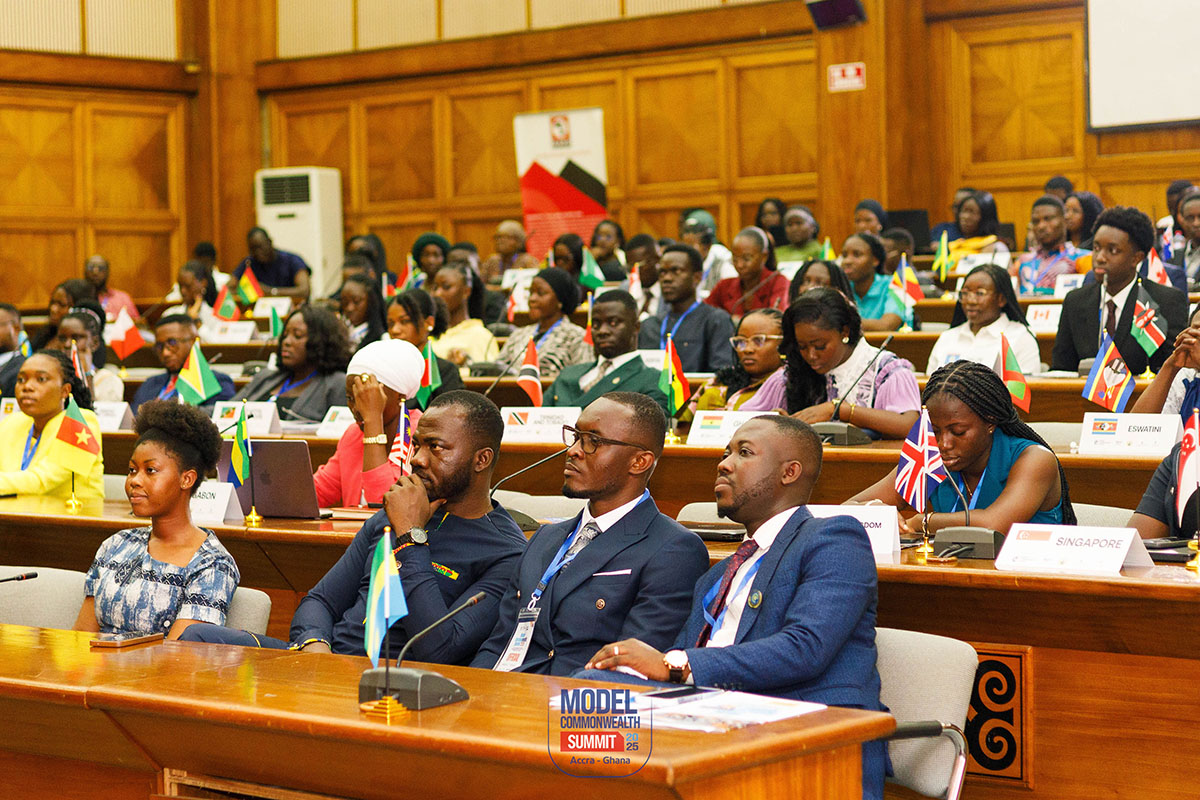From Protest to Policy: How Gen Z is Revolutionizing Governance Reforms
August 11by Lilian Efobi
Across the Commonwealth, young activists like Malala Yousafzai, Vanessa Nakate, Kelvin Doe, Bindi Karia, Ayakha Melithafa, Alika Kinan, Anote Tong, Sonika Manandhar and Rinu Oduala are using their voices and actions to cause positive changes in their communities and beyond.
In recent times, the organization, mobilization, and implementation of social movements have resulted in profound transformation across the world. ‘Generation Z’, also known as ‘Gen Z’, is leading this movement, using Internet activism to press for improvements in governance and challenging the status quo.
Gen Zs, who were born between 1995 and 2010 are already facing several obstacles as they cross into adulthood, including social instability, political polarization, economic hardship, and climate change. These obstacles have mobilised many of these young people into action. And although they are far from the first generation who have spoken up about injustice and other societal ills, technology has made Gen Zs activism look different to the movements of the past.
The Rise of Digital Activism
Activism has long been synonymous with youth culture. From the May 1968 protests in France, and the demonstrations against the Vietnam War and the Civil Rights Movement in the US, to the global Occupy movement and the Arab Spring of the late nineties, young people have a record of pushing forward social change.
Although Gen Z is the newest generation of activists, they seem to communicate, mobilize, and get support differently than previous generations. Gen Z activism has come to be associated with hashtag campaigns including #NeverAgain, #Endfinancebill protest on Kenya, #Quotareformprotest in Bangladesh, #BlackLivesMatter, #ClimateAction, #FreePalestine, #EndTheWar in Ukraine, #OccupyLekkiTollgate, and the #Endbadgovernance protest in Nigeria. Millions of young people worldwide have been mobilized by these Internet initiatives, which have also increased awareness of social justice concerns. Social media platforms have developed into a haven for activism, giving Gen Z the opportunity to interact directly with policymakers and get around traditional gatekeepers.
The concerns of Gen Z are fuelled by the fact that they are exposed to news about social issues and events in a manner that is different to when their parents or grandparents were at the same age. People can get a never-ending feast of reporting via social media platforms, search engines, news websites, and television with just a smartphone. In essence, digital spaces allow Gen Zs to creatively express their political opinions and build their civic identities. Examples of this include mentioning their sexual orientation in their Instagram bio and joining groups on WhatsApp, Facebook and Twitter Space that are related to their interests. They can assert their agency online, something they might not be able to do in more conventional public settings like their schools. A 2020 study from the UK Safer Internet Centre showed 34 per cent of 8-to-17-year-olds say the Internet has inspired them to take action about a cause and 43 per cent say it makes them feel their voices matter.
From Online to Offline
Gen Z activists have been using offline actions to demand change, with a smooth transition from online to offline. For example, as part of the #NeverAgain movement, students planned marches and demonstrations around the country to demand changes to gun laws. Similar to this, thousands of young people in Nigeria protested against police violence as part of the #EndSARS movement. Policymakers have been compelled to take notice and respond in large part because of this offline activity.
Policy Reforms now take centre stage for Gen Zs activism due to the offline actions. For instance, the #BlackLivesMatter movement prompted the adoption of police reform legislation in a number of US states. Governments all throughout the world have been pressured to pledge to net-zero carbon emissions by the #ClimateAction movement. Following the #EndSARS protests in Nigeria, the infamous Special Anti-Robbery Squad (SARS) was dissolved. These changes show how advocacy among Generation Z can influence policy, yet, the government daily strategies on ways to silence the voices of young protesters globally.
A New Era of Governance
A new era of governance marked by inclusivity, diversity, and Internet involvement is being ushered in by Gen Z’s activism. A change from traditional top-down governance to a more collaborative and participatory approach characterizes this new era. Gen Z is questioning the status quo and calling for a more just and equitable society. They are bringing new ideas, innovation, and enthusiasm to the governing table. Even if there is still a long way to go before there is real change, Gen Zs have the ability to raise awareness through social media, of the issues that are bothering them. Many of the recent youth-led street protests have been organised online, with Twitter, Facebook, TikTok and Instagram serving as hubs for information and networking.
From the Arab Spring to Black Lives Matter, youth-led movements are gathering momentum through digital means and result in large-scale transnational protests. One notable example saw children from primary level upwards walk out of school to demand action against climate change in March 2019. The 1.4 million-strong School Strike for Climate, the largest of its kind in history, captured global attention through documenting local protests on Twitter, with this global posting expanding its reach and encouraging others to organise their own versions. The strikes clearly had an effect, as concern about the climate crisis peaked in the same month the strikes took place.
Gen Z is significantly more liberal and anti-authoritarian than earlier generations, just like their Baby Boomer grandparents were before them. They are generally opposed to the expansion of jail terms, prohibitive drug laws, and an ever-increasing prison population. Additionally, they are ardent supporters of the freedom to protest and the use of civil disobedience as a means of raising awareness of problems they care deeply about when politicians are silent. Therefore, how can politicians win over Gen Z voters on law-and-order concerns without alienating their Gen X parents and Baby Boomer grandparents? This year alone, many Gen Zs are first-time voters in elections across the world.
Traditional political messaging like ‘tough on crime, tough on the causes of crime’ may not be as appealing to Gen Z voters as it was to earlier generations, as the generations share of the electorate will increase over time. Compared to previous generations, Gen Z is more inclined to use civil disobedience as a means of expressing their strong moral views. Gen Z voters are half as likely as adult voters in general to think that the law should always be followed (16% vs. 32%). The activism of Generation Z is transforming improvements in governance. No doubt that Generation Z is influencing the direction of a new era of governance that is more inclusive, participatory, and sensitive to the interests of all citizens through online activism, offline mobilization, and policy participation.
Gen Z’s enthusiasm and inventiveness must be fully utilized in order to create a brighter future for everybody. Now that the status quo is under threat, change is necessary and it begins with you and me.






